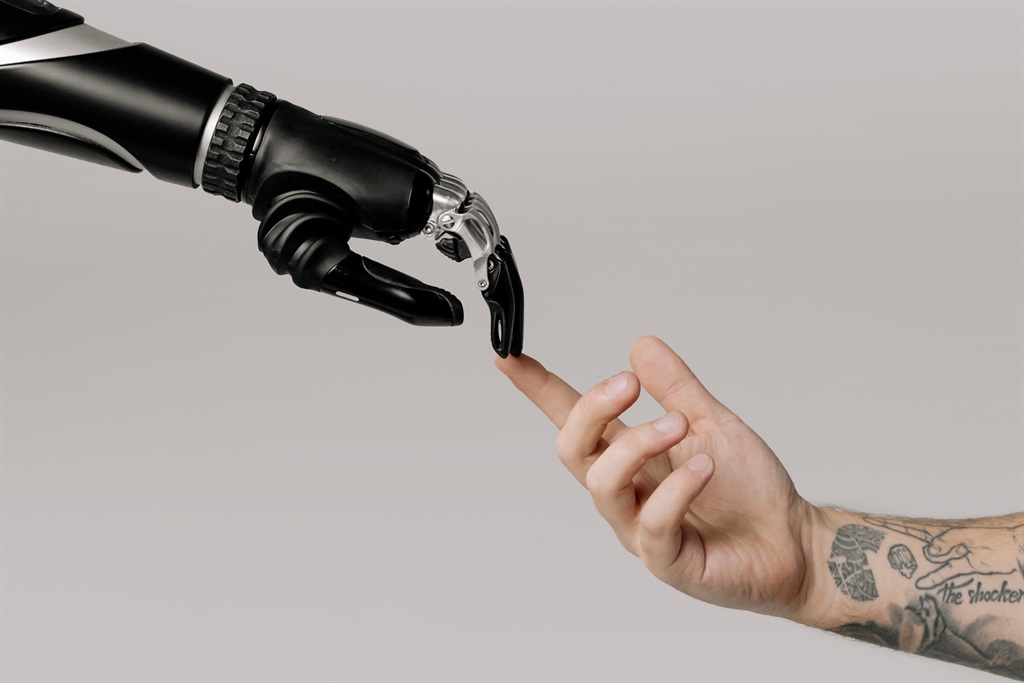
The most interesting questions around artificial intelligence are not technological but ethical. Mitch Ilbury asks if it is wrong, then, to call AI humanity's whipping boy.
Views abound on whether artificial intelligence will cure cancer and solve poverty or take over the world and make humans little more than minions and playthings. The truth lies in what motivates those holding the whip: us.
Nicholas Thompson, CEO at The Atlantic and former editor of Wired magazine, recently presented what he considered one of the most interesting questions in tech:
Just asking this kind of question shows how far the technology has come. Once a speculative sci-fi quest reserved for techies, novelists and comic book writers, AI is now mutating into forms infiltrating our everyday lives. ChatGPT – the poster boy of accessible AI – is the fastest-growing consumer application in history.
To answer whether AI can be inherently good or determine whether this question makes any sense at all, we need to look not to the future but to the past.
Tech: It’s all Greek to me
Nearly 2500 years ago, Socrates, considered the father of Western philosophy, would pester people with similar questions in the beating heart of Athens. He would hover around the agora, or marketplace, and intellectually accost shoppers . He was, by his own admission, a rather ugly man, and earned the nickname 'gadfly' in honour of his swotty annoyance.
One of his most dogged intellectual preoccupations was with the purpose of things. Not the fluffy Start With Why Simon Sinek kind of purpose; more mundane than that: What was the function of a thing? Referring to a common instrument or tool, what should it be used for?
READ | OPINION: Andre Vlok - SA increasingly likely to fall behind in the AI arms race
A knife cuts and a bowl holds food or water. Extrapolating further, we humans have functions too. A military general is a strategist, and a taxi driver takes you from A to B. If a knife doesn't cut well, we may say it is a 'bad' knife. If you ask your taxi driver to take you to the airport and he takes you to his mother’s house, he is a bad, even troubled, taxi driver. The quality of a thing, therefore, is judged on its function - how well it does what it was designed to do.
AI the slave
What, then, is AI’s function? The holy grail of AI evolution is human-level intelligence. Why should this be so scary, exciting, or appealing when we already have eight billion human-level intelligence devices on Earth? This misses the point, though.
Let's not forget AI's cybernetic form and that the word robot comes from the Czech word, robota, meaning forced labour. The value of artificial intelligence, at this stage, is that we can get it to do things humans don't want to or don't have the time to do at an exploitative rate that would frighten even the most demanding 17th-century slave owners. Want to crunch this colossal database for a few lines of user insight? AI will do it for you in a fraction of the time. Plus, it can't unionise.
READ | OPINION: Can you be fired if artificial intelligence can do your job?
That is not its only value, however. Rapid speed and an unwavering work ethic are fine qualities in an employee, but it is the ability to connect dots across billions of data points that shows AI's true value beyond the human brain. While we can do complex emotions and critical thinking, AI processes like a machine, which is why it can detect early signs of lung cancer years before any doctor.
AI pattern recognition is not human-like; it is superhuman-like.
The good, the bad and the ugly
Identifying early stages of cancer is an example of a good use-case of AI – 'good’ in the sense of being morally good; creating disinformation campaigns to shape elections illegally would be a bad use-case of AI. That we can currently use the technology for both shows AI is neither inherently good nor bad, at least in the sense that a pencil isn't bad until you stab it in someone’s eye.
It is this dimension that Nicholas Thompson was exploring as one of the most interesting questions in tech. Even though a knife may not be inherently bad because someone uses it to kill another, he said, one could argue that a knife is inherently more dangerous than a spoon. Unless, of course, that spoon is transporting a few grams of Novichok across the streets of Salisbury.
The point is, so long as we treat it as a tool or slave, and unless it develops the capacity for motivation – to do what it wants, when it wants – AI can be neither inherently good nor bad.
Until then, AI will be motivationally inert and shaped exclusively by its programmatic purpose, defined by us humans. We hold the whip, and AI is our whipping boy. Therefore, the real question we should ask is whether humans are inherently good.
- Mitch Ilbury is a strategist and director at Mindofafox.
*Want to respond to the columnist? Send your letter or article to opinions@news24.com with your name and town or province. You are welcome to also send a profile picture. We encourage a diversity of voices and views in our readers' submissions and reserve the right not to publish any and all submissions received.
Disclaimer: News24 encourages freedom of speech and the expression of diverse views. The views of columnists published on News24 are therefore their own and do not necessarily represent the views of News24.




 Publications
Publications
 Partners
Partners























